Directory
- Share
Charles (Carl) Emogor
- Alumni
- Nigeria
- 2019 PhD Zoology
- St Edmund's College
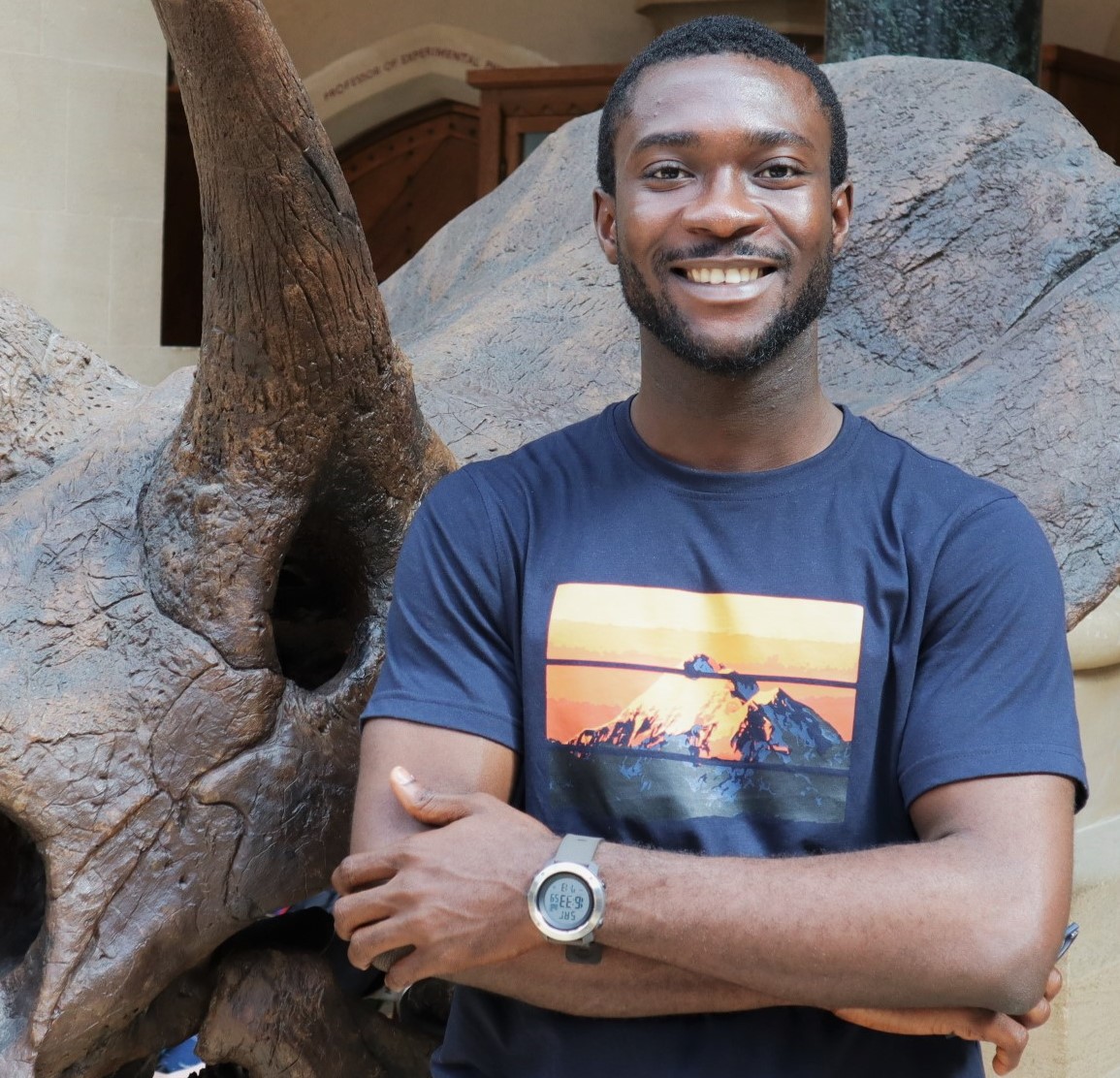
Charles (Carl) Emogor
- Alumni
- Nigeria
- 2019 PhD Zoology
- St Edmund's College
I have always been fascinated by wildlife and wild places since my childhood. Growing up in a rural community in Nigeria, I had the first-hand opportunity to interact with nature. Unfortunately, during my early teenage years, these places were fast disappearing, including the wild animals that lived in them. This was my motivation to study Forestry and Wildlife Management for my bachelor’s degree. After my degree in Nigeria, I completed the Durrell Endangered Species Management Graduate Certificate at the Durrell Wildlife Academy in Jersey, United Kingdom (validated by the University of Kent), and an MSc in Biodiversity, Conservation and Management at the University of Oxford. Focused on Cross River gorilla conservation in the Cross River rainforest, I worked for the Wildlife Conservation Society, Nigeria for about two years prior to my MSc.
During my Ph.D. in Zoology, I seek to understand the population dynamics and ecology of three pangolin species in Nigeria. My research also aims to understand the role Nigeria plays in the trade of pangolins which are currently the most illegally traded mammals. This study will shed important new light on the drivers and characteristics of the trade in pangolins in Nigeria which will be useful in implementing behavioural change interventions and enforcement actions against the trade.
Previous Education
University of Oxford Biodiversity, Conservation/Mgt 2019
The University of Kent Durrell Endangered Species Mgt 2018
Cross River University of Tech Forestry and Wildlife Mgt 2016
Zoljargal Enkh-Amgalan
- Alumni, Scholar
- Mongolia
- 2022 MPhil Social Anthropology
2023 PhD Social Anthropology - Wolfson College
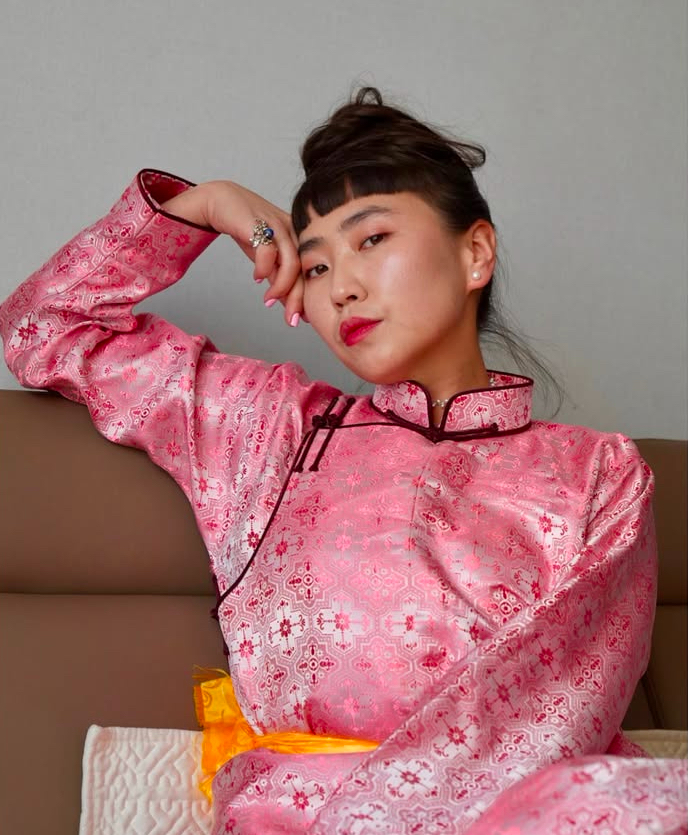
Zoljargal Enkh-Amgalan
- Alumni, Scholar
- Mongolia
- 2022 MPhil Social Anthropology
2023 PhD Social Anthropology - Wolfson College
At Cambridge University, where I am currently enrolled in an MPhil program and surrounded by hundreds of outstanding young academics, I find myself inspired by the youth voice. It is a great honor for me to be an awardee of the Gates Scholarship again for my PhD program in social anthropology at Cambridge. The experiences I have had both locally and internationally with youth culture have led me to recognize that youth politicisation and social movements are vital elements of our society. Socioeconomic hardships, unequal access to social and economic capital are the issues that underpin social movements in Mongolia. A study of Ulaanbaatar city focusing on its movements will assist us in understanding the complexities of social problems and political activism among citizens. In the broad scope, it covers many issues, including those related to social movements, the realisation of national identity, the impact of digital technologies, the relationship between citizens and the state, and the evolving political landscape.
Previous Education
University of Cambridge Social Anthropology 2023
Free University of Berlin Socialogy and Anthropology 2022
National University of Mongolia Sociology and Anthropology 2014
Katherine Enright
- Alumni
- United States
- 2023 MPhil Digital Humanities
- Trinity College
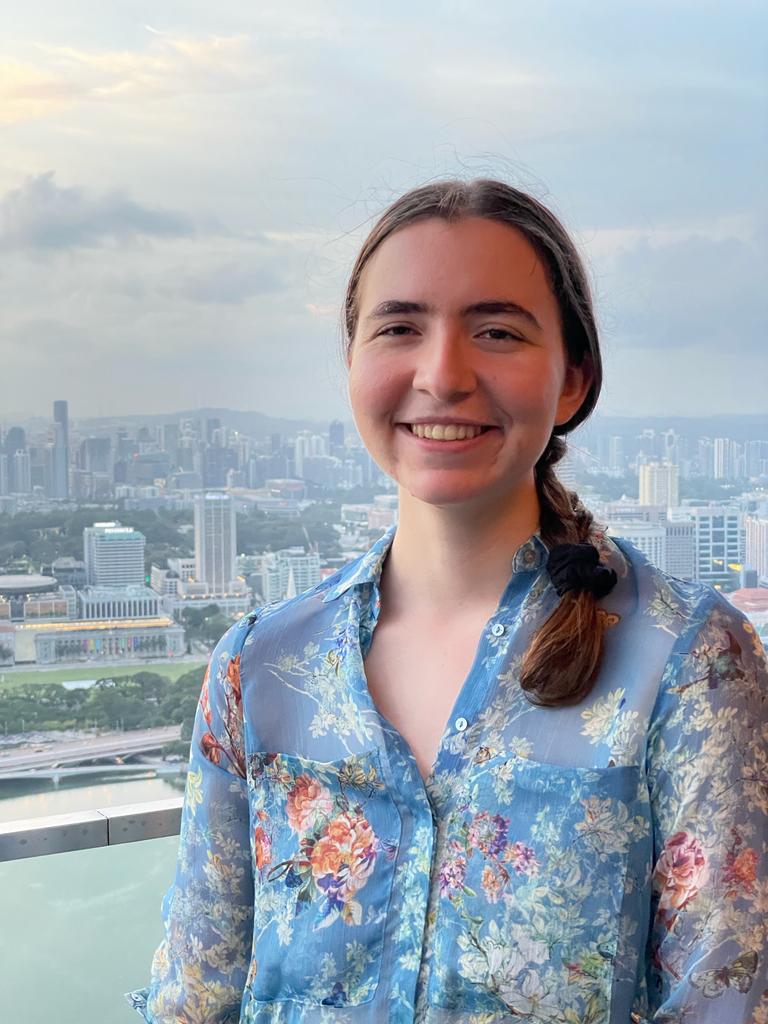
Katherine Enright
- Alumni
- United States
- 2023 MPhil Digital Humanities
- Trinity College
I grew up in Singapore, where I developed a fascination with history and a love for the natural world. At Harvard, I combined those two interests during my B.A. in History and Anthropology. I have a keen interest in how nature in Southeast Asia came to be understood as ‘science,’ and how both histories of empire and rich cultural narratives can be displayed in museum spaces. During my MPhil in Digital Humanities, I seek to create a database that will bring together disparate archival sources on Southeast Asian natural history and its key people and institutions, including local and indigenous figures. By creating digital resources, working with specimen data, and engaging in online storytelling, I hope to contribute to crucial ongoing efforts to decolonize natural history collections. My research works towards a future with more accessible and racially just museums as spaces of learning and wonder. I am thrilled to join the Gates Cambridge community of scholars this year.
Previous Education
Harvard University History and Anthropology 2023
Friedel Epple
- Alumni
- Germany
- 2003 PhD Theoretical Physics
- Clare Hall

Friedel Epple
- Alumni
- Germany
- 2003 PhD Theoretical Physics
- Clare Hall
Noa Epstein Tennenhaus
- Alumni
- Israel
- 2010 MBA Management
- Darwin College
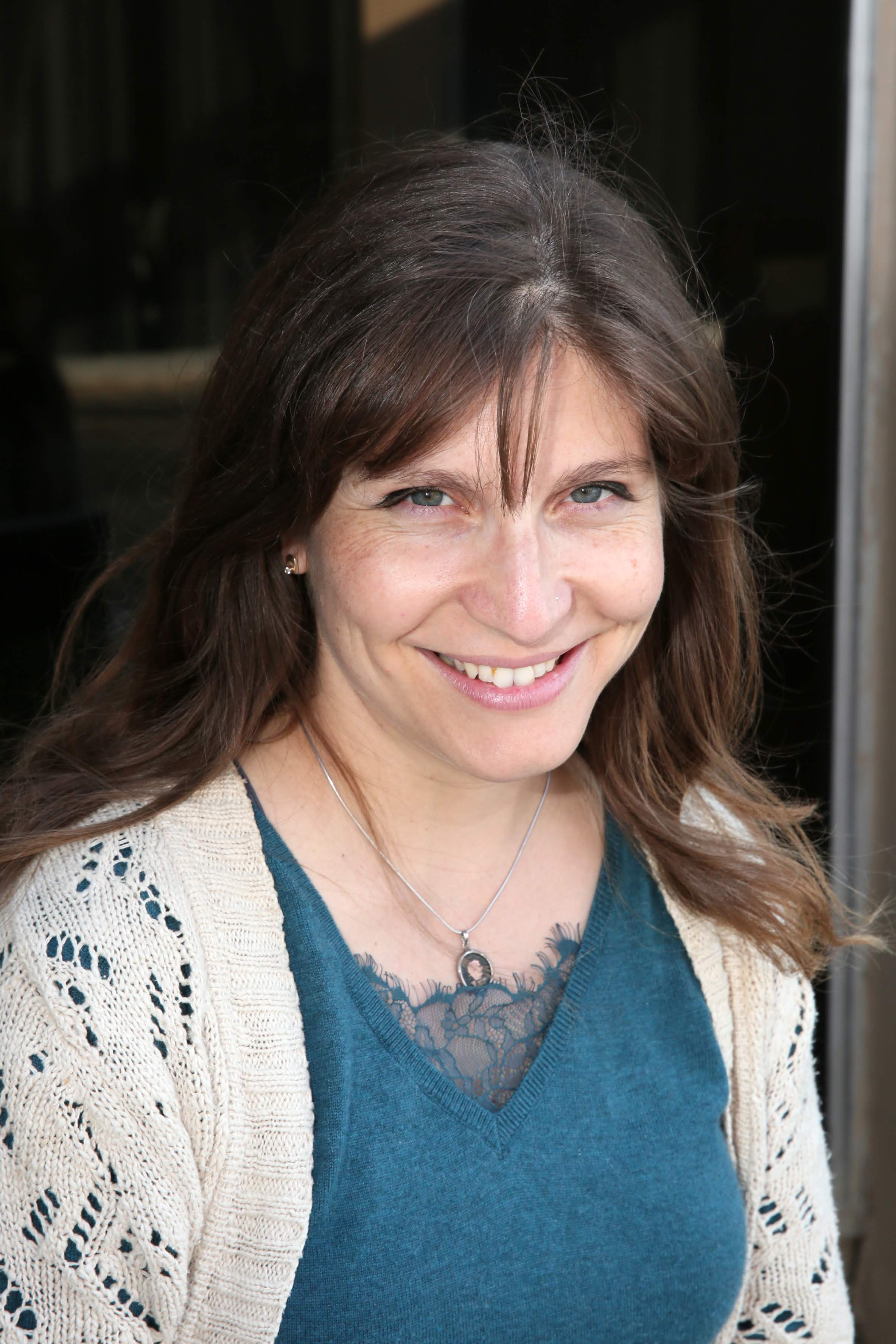
Noa Epstein Tennenhaus
- Alumni
- Israel
- 2010 MBA Management
- Darwin College
I am passionate about communicating powerful messages that matter. Born and raised in Jerusalem, I've developed a long time interest in building a constituency for peace between Israel and its Arab neighbors and contributing towards equality and better relations between Jews and Arabs within Israel. I became active in "Seeds of Peace", a conflict resolution and leadership program, and was awarded a full scholarship to study at the United World College international school in Norway (UWC). After graduating from the Hebrew University with a BA in International Relations Summa Cum Laude, I worked as a Parliamentary Assistant to one of Israel's leading Arab MPs, Dr. Ahmad Tibi, and later held leading positions at Peace Now and the Peres Center for Peace. After receiving my MBA from Cambridge Judge Business School I became CEO of MEET - Middle East Entrepreneurs of Tomorrow, an organization that empowers the next generation of Israeli and Palestinian change-makers through technology and entrepreneurship education. In 2016, on a mission to make exceptional opportunities more accessible, I founded Application Shine, a global consultancy that helps individuals and companies communicate their message brilliantly. Specifically, we help people apply to the most competitive academic programs, scholarships and jobs and offer copywriting and marketing services to startups and companies. ApplicationShine.com
Previous Education
The Hebrew University of Jerusalem
Links
http://applicationshine.com
https://www.facebook.com/noa.epstein.1
https://www.linkedin.com/in/noaepstein
Katherine Epstein
- Alumni
- United States
- 2004 MPhil International Relations
- Pembroke College
Katherine Epstein
- Alumni
- United States
- 2004 MPhil International Relations
- Pembroke College
I'm from Washington, DC, and just graduated from Yale with a B.A. in history. I'm grateful for the opportunity to study at Cambridge and excited for the coming year. I hope to learn about international relations and to pick up the English language while I'm here.
Georgiana Epure
- Alumni
- Romania
- 2016 MPhil International Relations & Pols
- Christ's College
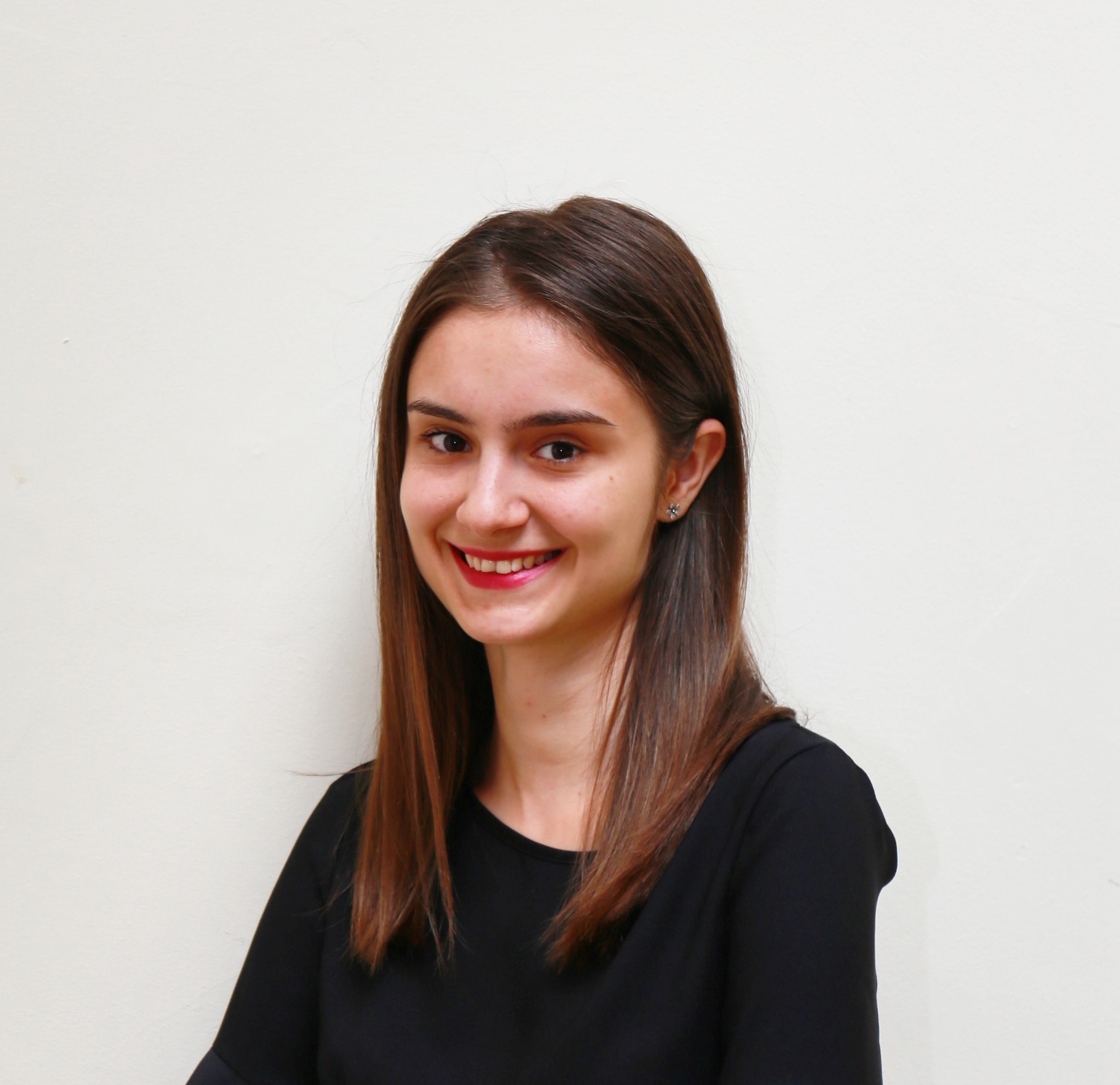
Georgiana Epure
- Alumni
- Romania
- 2016 MPhil International Relations & Pols
- Christ's College
Georgiana Epure is a human rights and gender justice advocate, with a background in international politics and international criminal justice.
Georgiana is Senior Advocacy and Campaigns Officer at Girls Not Brides: The Global Partnership to End Child Marriage, where she leads the development and delivery of Girls Not Brides’ global advocacy and campaigns to end child marriage, in collaboration with teams based in Africa, Asia and Latin America and the Caribbean, member organisations and National Partnerships and coalitions.
As the President of the Association for Liberty and Gender Equality (Romania), she coordinates the organisation’s advocacy work, with a focus on eliminating harassment in the workplace, combatting violence against women, and developing feminist cities. She also serves on the Board of Women Deliver, an international NGO that seeks to advance sexual and reproductive health and rights.
Previously, Georgiana was a Legal Associate with the Open Society Justice Initiative, where she worked on human rights strategic litigation and advocacy on issues ranging from economic justice and women’s rights to corporate accountability, ensuring respect for human rights in national security operations and implementation of judgments. Prior to this, Georgiana worked at the European External Action Service and in the Office of the Prosecutor at the International Criminal Court.
Georgiana holds an MPhil degree in International Relations and Politics from the University of Cambridge, funded by the Bill and Melinda Gates Foundation, and an MA degree in Social Science Research Methods from the University of Leeds, where she also completed her BA in International Relations as a valedictorian.
Previous Education
University of Leeds
Simone Eringfeld
- Scholar
- Netherlands
- 2022 PhD Polar Studies
- Jesus College
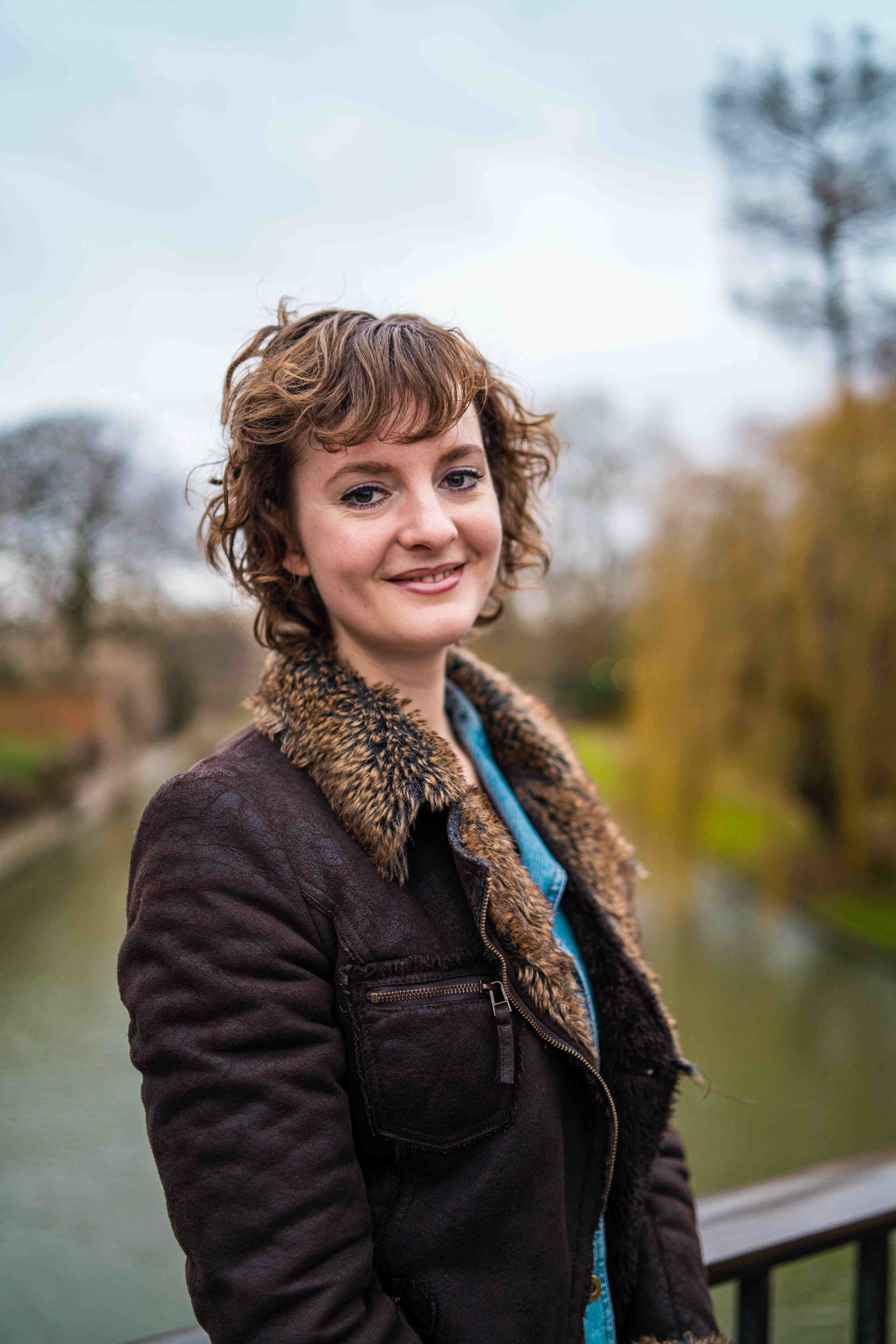
Simone Eringfeld
- Scholar
- Netherlands
- 2022 PhD Polar Studies
- Jesus College
My interest in Antarctica was first triggered when, growing up in the Netherlands, I noticed its absence from the world maps we used in school. I became intrigued by this mysterious blind spot; this blank and ‘silent’ space. At age 18, I made a life-changing trip to Antarctica. Ever since, I’ve been committed to expanding public knowledge about Antarctica. For my undergraduate studies, I completed 3 BA degrees at once, in Philosophy, Literary Studies, and International Relations. This multidisciplinary background helped me understand the extent to which storytelling shapes our worldview. And the stories we tell about Antarctica tend to be dominated by the archetype of the heroic white male explorer. My PhD will investigate how we can shift public perception of Antarctica, by amplifying the underrepresented narratives and muted voices that also form part of Antarctica’s diverse (hi)story. During my MPhil in Education at the University of Cambridge, I began to use podcasting to create participatory platforms for public reflection about future-making. For my PhD, I will use podcasting and soundscaping as sonic methods to capture Antarctica’s polyvocality, in order to start foretelling more inclusive and sustainable Antarctic futures.
Previous Education
University of Cambridge Education 2021
University of Amsterdam Literary and Cultural Studies & Philosophy 2019
University of London International Relations 2019
Isil Erol
- Alumni
- Turkey
- 2001 PhD Land Economy
- Downing College

Isil Erol
- Alumni
- Turkey
- 2001 PhD Land Economy
- Downing College
Sebhat Erqou
- Alumni
- Ethiopia
- 2006 PhD Public Health & Primary Care
- Downing College
Sebhat Erqou
- Alumni
- Ethiopia
- 2006 PhD Public Health & Primary Care
- Downing College
Having completed my trainings in medicine and epidemiology, I am engaged in clinical and research works, and hope to make a positive impact on societal health. My research work focuses on cardiovascular disease risk factors, outcomes of chronic infectious diseases such as HIV, and the inter-relationship between the two.
Jumana Esau
- Alumni
- United States
- 2020 MPhil English Studies
- Emmanuel College
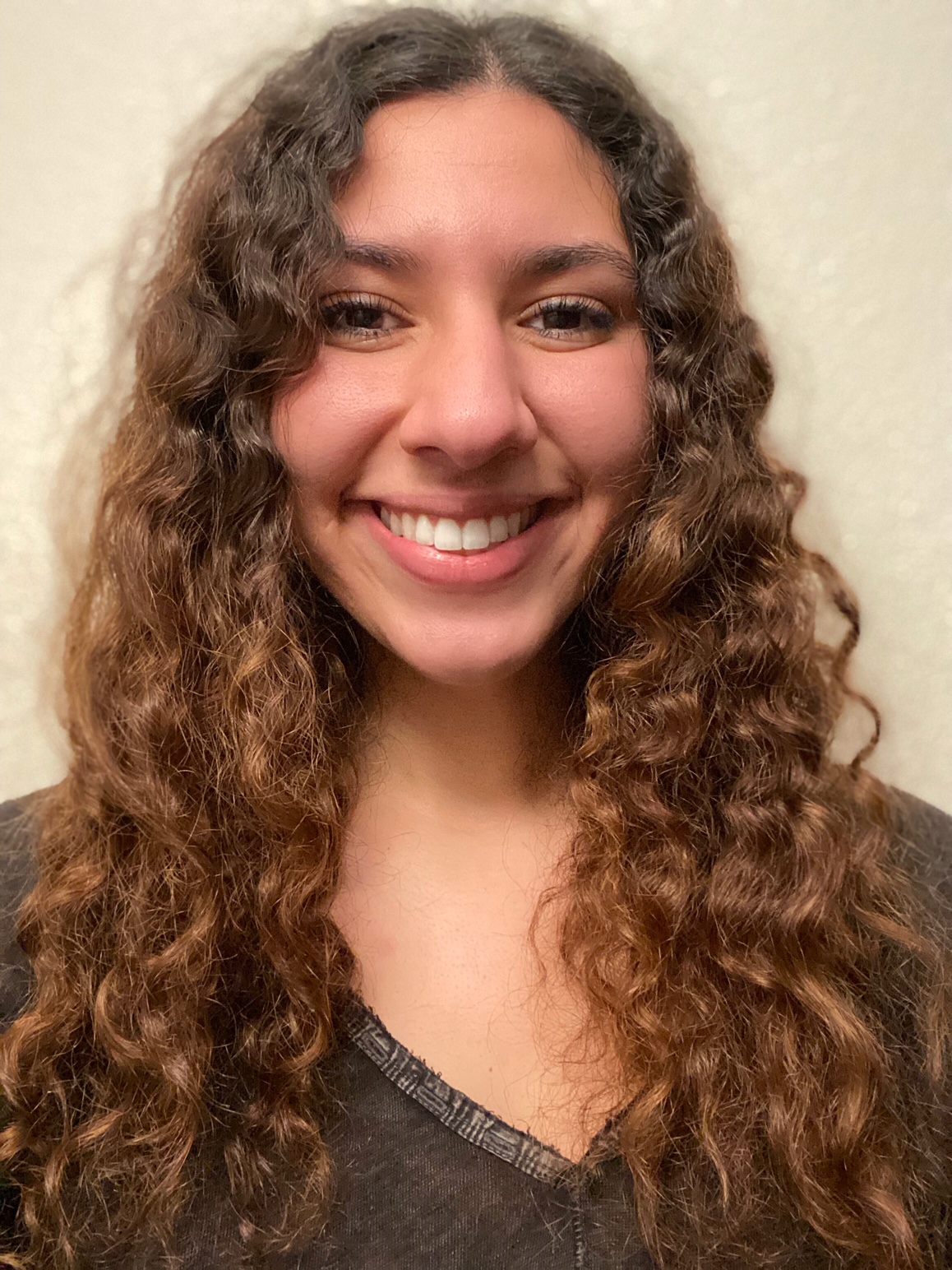
Jumana Esau
- Alumni
- United States
- 2020 MPhil English Studies
- Emmanuel College
As a Palestinian-American dividing my time between Jordan and the United States, I have always struggled with living on the margins. However, fiction provided a sense of belonging and stability in my life, later influencing my study of English literature at UC Davis. During my time as an English major, I searched for Arab representation in the novels that I read. While taking a Climate Fiction course, I realized that my culture was not being represented in the climate narrative. The Jordan River is being siphoned off and I am watching my country gradually evaporate, yet there are no works of climate fiction that address these issues. As part of my undergraduate thesis, I examined how authors grapple with climate change while trying to represent marginalized communities. Through the MPhil in English Studies: Criticism and Culture, I hope to further engage with this interdisciplinary research, since climate change is intricately woven with colonialism. I believe that creating a dialogue between science and literature, while giving a platform to disenfranchised communities, is essential for tackling anthropogenic climate change.
Previous Education
University of California Davis English 2020
Mateo Espinosa Zarlenga
- Scholar
- Ecuador
- 2021 PhD Computer Science
- St Edmund's College
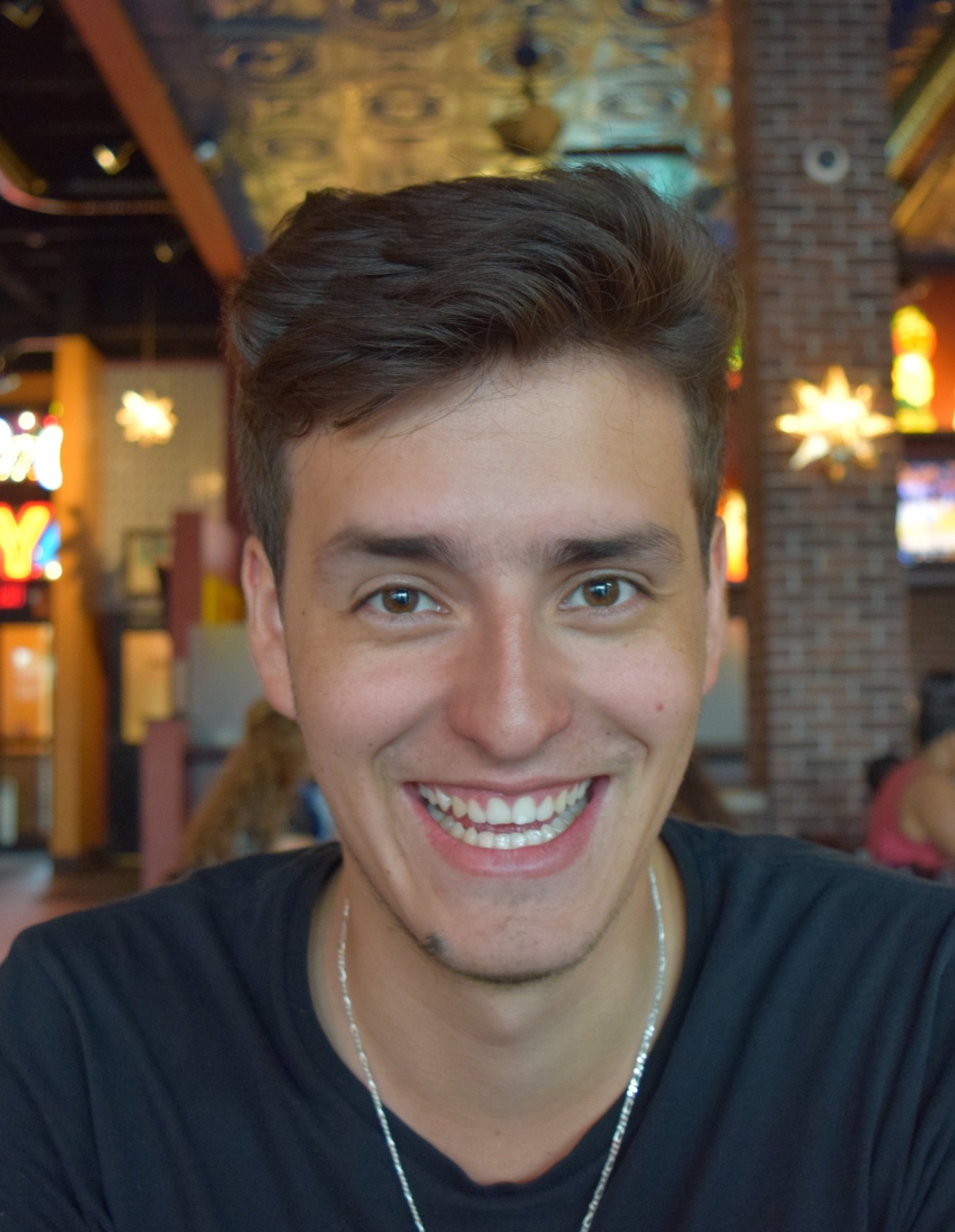
Mateo Espinosa Zarlenga
- Scholar
- Ecuador
- 2021 PhD Computer Science
- St Edmund's College
After growing up in Ecuador I was fortunate to have the opportunity to pursue an undergraduate and master’s degree in Computer Science at Cornell University. It was during this time that I was first introduced to the untapped potential of machine learning algorithms and their applications in both academia and industry. As I continued to explore these methods as an early employee of a machine learning startup and as an MPhil student in Cambridge, it became abundantly clear to me that the deployment of these algorithms is often constrained by their lack of interpretability. This is perhaps most limiting in healthcare settings, where transparency and accountability are of utmost importance. During my PhD I wish to explore ways to design high-performing machine learning systems that can learn to explain their decisions using concepts that are intuitive to users. If successful, the deployment of such systems in day-to-day medical diagnosis could not only provide opportunities for early intervention in critical patients but may also open new leads for research in fields outside of medicine. The possibility of achieving these prospects, and the challenge they represent, make this research something I am incredibly excited to pursue.
Previous Education
University of Cambridge Advanced Computer Science 2021
Cornell University Computer Science 2017
Oscar Espinoza Martin
- Scholar
- Peru
- 2024 MPhil Heritage Studies
- Fitzwilliam College
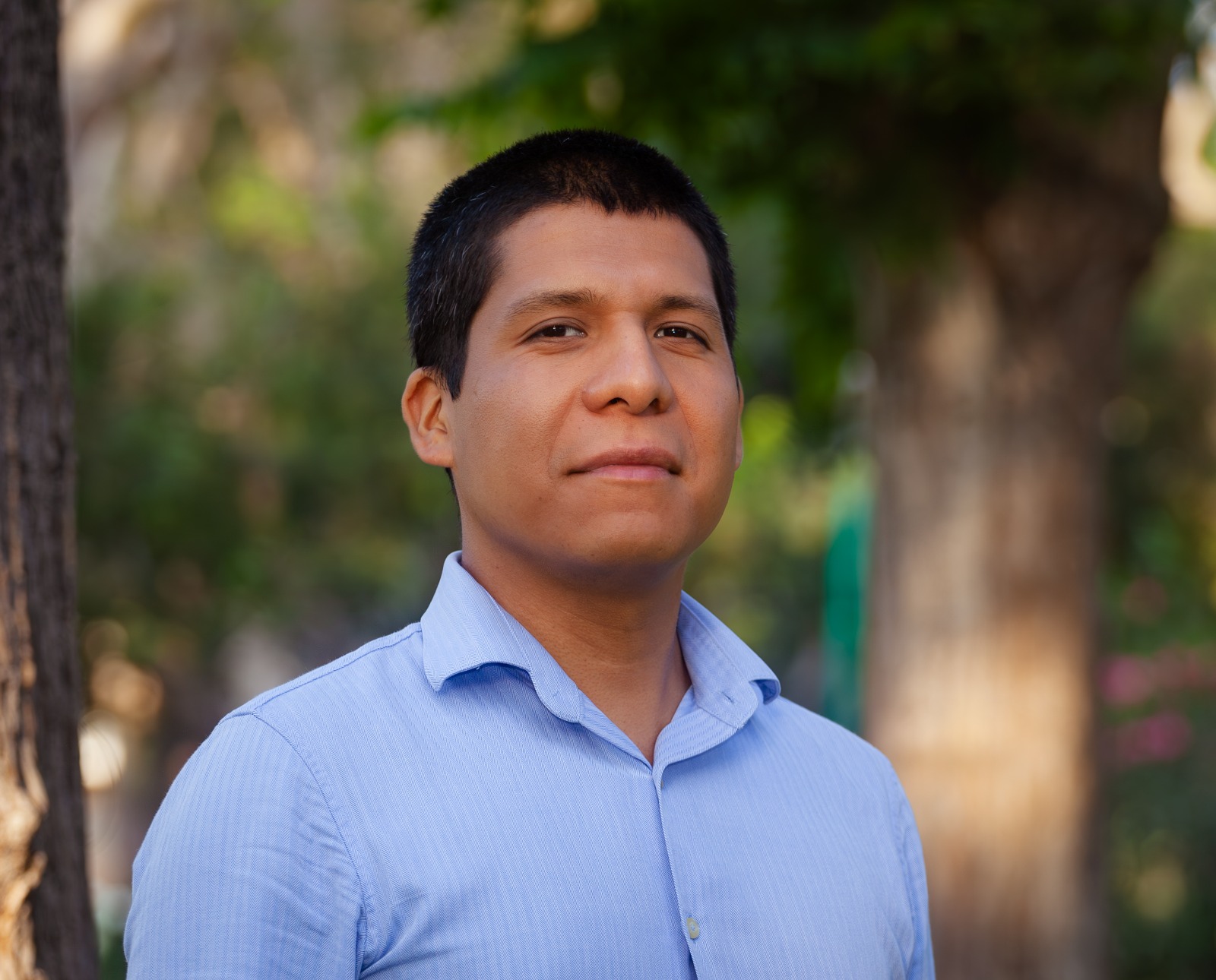
Oscar Espinoza Martin
- Scholar
- Peru
- 2024 MPhil Heritage Studies
- Fitzwilliam College
As an archaeologist of indigenous descent, I am committed to improving the lives of Andean communities by empowering them to assert their cultural rights. During my ten years of professional experience in Peru’s Ministry of Culture, I have collaborated with Indigenous people on projects to preserve archaeological sites and landscapes that are crucial to their cultural identity and well-being. Engagement in such projects enables communities to participate in heritage decision-making, fostering their sense of citizenship. From colonial times, Peruvian society has been characterised by systemically discriminating Indigenous people. So, I firmly believe heritage is a powerful instrument to tackle this, granting communities a platform to become political actors by speaking out, being heard, and caring for their cultural properties.I am also interested in unravelling the role of heritage and the politics of the past in contemporary Peru. Using a mixed research methodology (ethnographic data, archival research, and statistics), I am studying how closely heritage is related to the modernisation of the Peruvian state in the 20th century, periods of widespread state violence, and Neo-extractivism.
Previous Education
Universidad de San Marcos Archaeology 2022
Universidad de San Marcos Archaeology 2014
Shannon Esswein
- Alumni
- United States
- 2014 MPhil Biological Science (Biochemistry)
- Churchill College
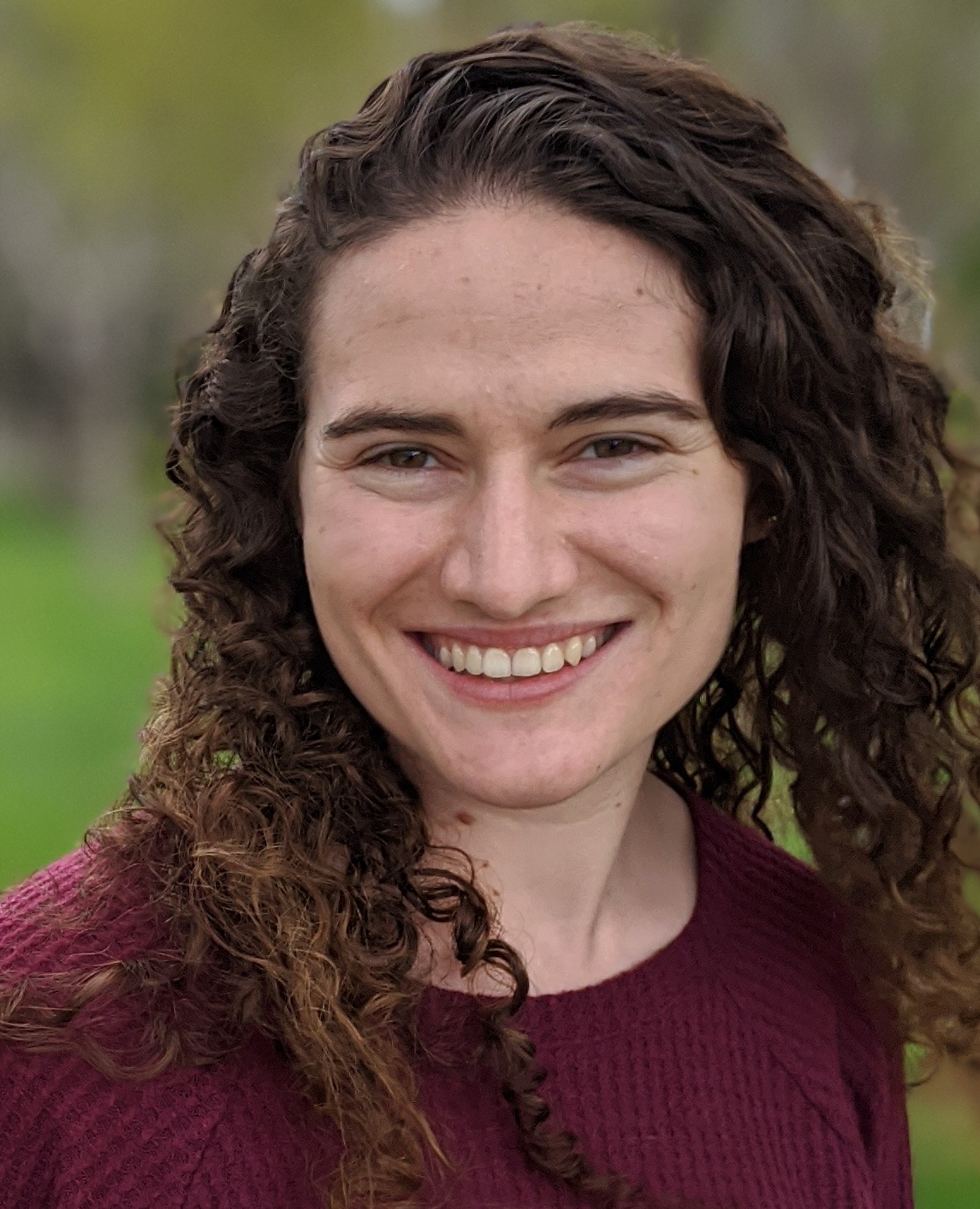
Shannon Esswein
- Alumni
- United States
- 2014 MPhil Biological Science (Biochemistry)
- Churchill College
Shannon Esswein is an MD-PhD Candidate in the University of California, Los Angeles-California Institute of Technology Medical Scientist Training Program. She uses biochemistry and structural biology to investigate protein structures relevant for understanding mechanisms of disease and identifying new therapeutic targets. In her undergraduate research at the University of California, Los Angeles, Shannon studied the molecular pathogenesis of immunoglobulin light-chain amyloid fibrils implicated in systemic light-chain amyloidosis disease and the blood cancer multiple myeloma. Subsequently, during her M.Phil. research at Cambridge, she investigated non-homologous end joining, a repair system for DNA double strand breaks that can be used by cancer cells to decrease the effectiveness of radiation therapy. As part of this research, Shannon identified small molecules that may inhibit this repair system for use in combination therapy. Now, as a Ph.D. Candidate at California Institute of Technology, she is studying the immune response to Zika and other viruses using cryo-electron microscopy. Shannon aims to apply biomedical research towards advancing treatment options and improving patient care as a physician-scientist.
Previous Education
University of California, Los Angeles B.S. Physiological Science 2013
Links
William Eucker
- Alumni
- United States
- 2008 MPhil Technology Policy
2009 PhD Polar Studies - Peterhouse
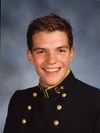
William Eucker
- Alumni
- United States
- 2008 MPhil Technology Policy
2009 PhD Polar Studies - Peterhouse
I am a junior naval officer and member of the Arctic Ocean Geopolitics Programme at the Scott Polar Research Institute. Recently, I have been exploring the increasingly dangerous gap between national and international maritime governance structures in the ice-diminishing Arctic Ocean. After my studies, I will serve in the U.S. Submarine Force.
Lesley Everett
- Alumni
- United States
- 2006 MPhil Epidemiology
- Homerton College
Lesley Everett
- Alumni
- United States
- 2006 MPhil Epidemiology
- Homerton College
I’m particularly interested in the genetic and environmental determinants of common diseases and the translation of research into primary care and public health practice. At Cambridge I will pursue an MPhil in epidemiology to prepare for a career in genetic epidemiology and public health genetics. I hope to work with the CDC’s Center for Genomics & Disease Prevention or the National Human Genome Research Institute at the NIH to understand and resolve the complex genetic conditions of special populations. Next fall I will return to the United States to begin a PhD program in Human Genetics at the University of Michigan, Ann Arbor.
Jamila Ezbidi
- Alumni
- Palestine, Germany
- 2020 MPhil Politics & International Studies
- Homerton College
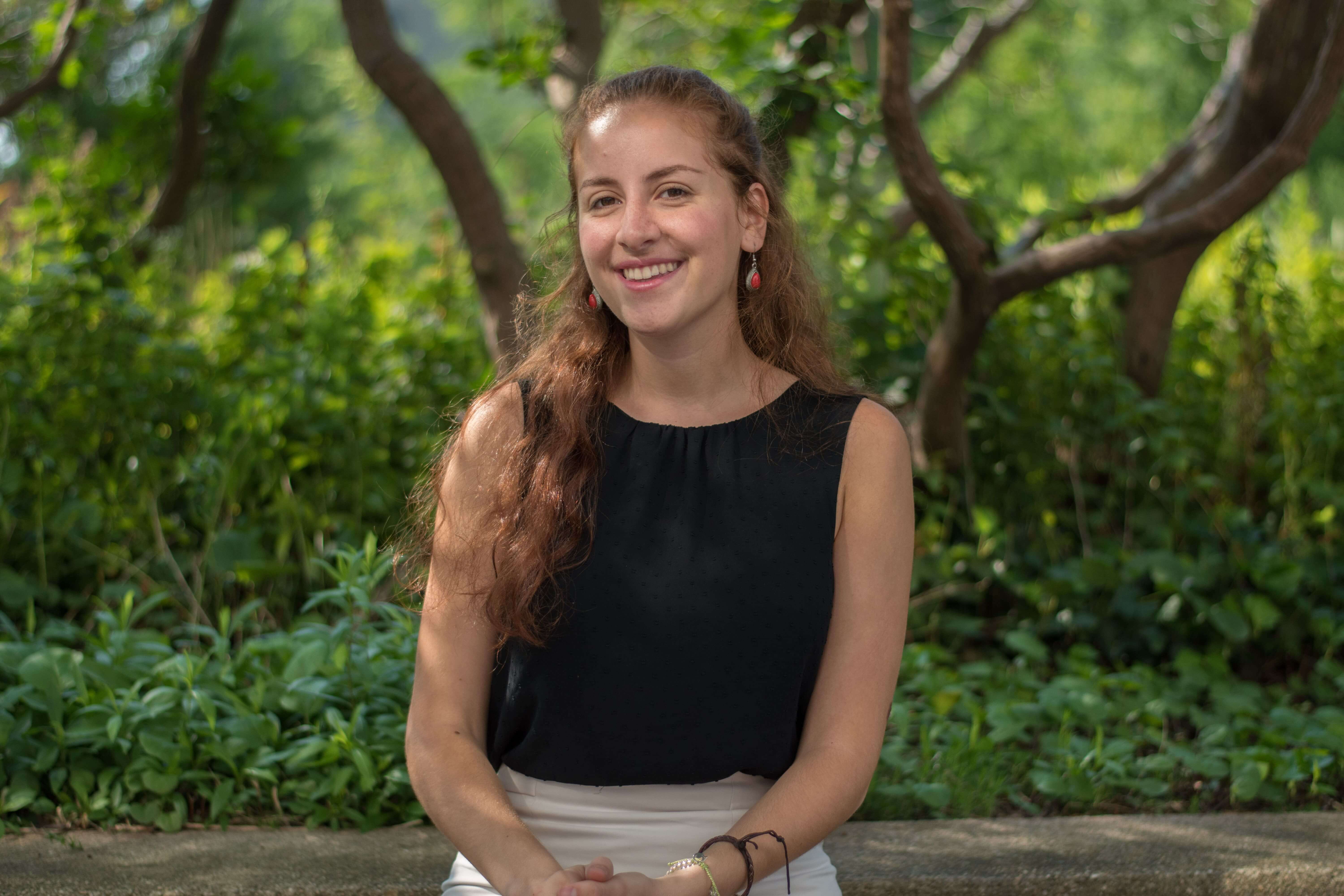
Jamila Ezbidi
- Alumni
- Palestine, Germany
- 2020 MPhil Politics & International Studies
- Homerton College
I strongly believe in the power of modern diplomacy to prevent and resolve conflict and address challenges. But diplomacy must evolve to meet the changing needs of a globalized world and adapt to new realities that are characterized by the emergence of non-traditional non-state actors, the increase of IT and social media, interdependent economies, and environmental and global health concerns. Another key issue to be addressed is the gross underrepresentation of women in leadership and their lacking participation in diplomatic efforts, into which issue I gained extensive insight during my internship at UN-Women. Progress can be achieved by making diplomatic practice more transparent, inclusive, and accessible, allowing for innovative and creative collaboration among relevant diplomatic levels and actors in efforts to tackle complex new challenges. As a Palestinian-German woman and aspiring peace mediator, I wish to contribute to the evolution of diplomacy to better uphold human rights and respond to humanitarian and societal concerns. Having grown up in Palestine under conflict, I experienced firsthand its detrimental, multi-faceted impact on people's lives. For my research, I will analyze arguments that link conflict to ethnic identity while examining the role of leadership.
Previous Education
Connecticut College International Relations 2019
Connecticut College Architectural Studies 2019
Leonardo F. Souza-McMurtrie
- Scholar
- Brazil
- 2023 PhD Law
- Fitzwilliam College
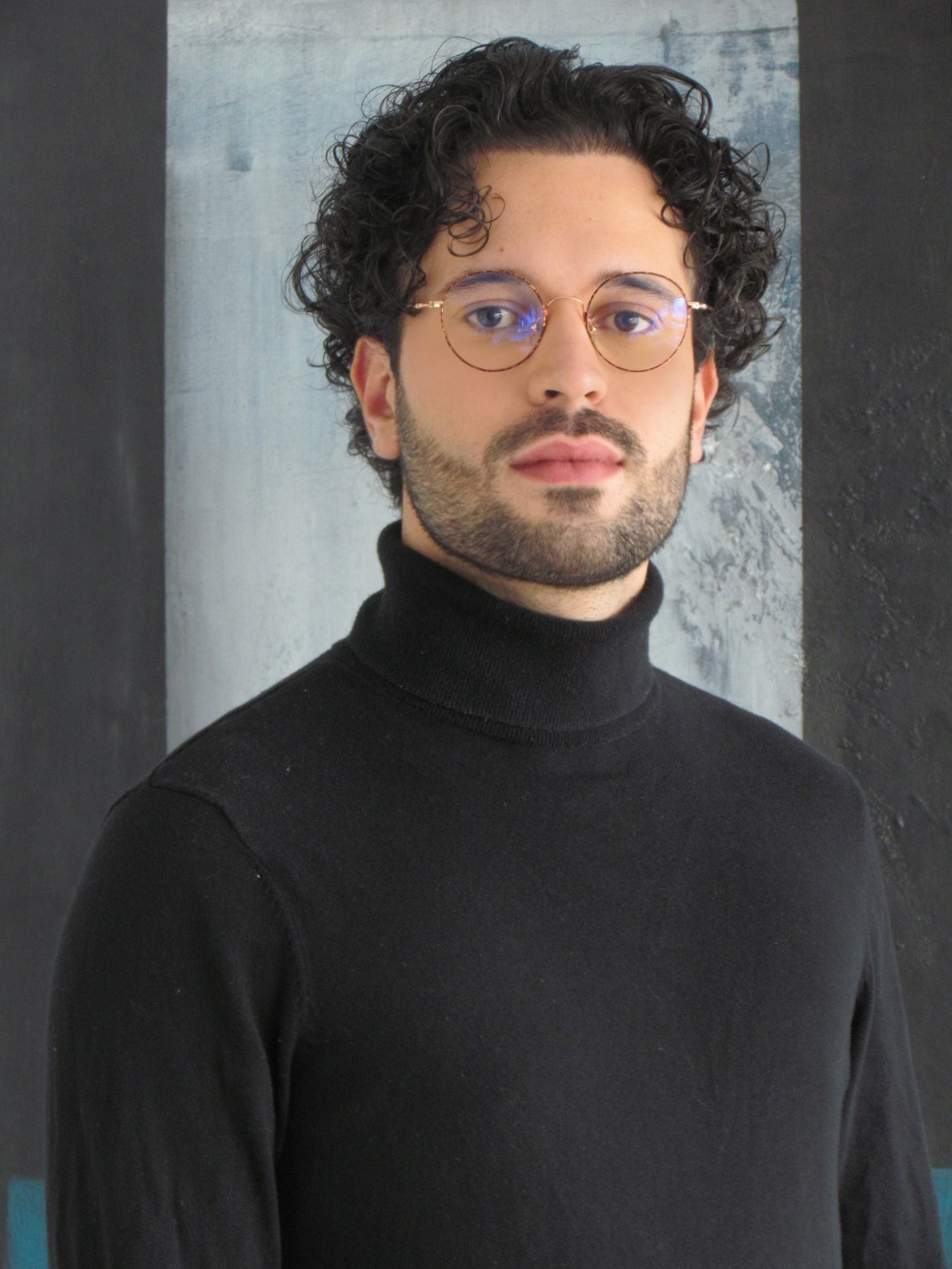
Leonardo F. Souza-McMurtrie
- Scholar
- Brazil
- 2023 PhD Law
- Fitzwilliam College
What if the law itself is the ultimate form of illegality? Rules shape everything: what you wear, what you eat, the planes you fly in. Thousands of people must cooperate under shared rules for any of this to work. We rely on these norms to produce a coherent whole, like a machine that takes behaviour as input and returns a verdict: legal or illegal. This engine runs on binary code, classifying the world into dualities: public and private, sovereign and subject, land and sea, crime and punishment, war and peace. But sometimes it produces a result that cannot be traced back to its own logic. A conclusion that breaks free from the premises on which it was built. I research these moments of rupture, where international law loops back on itself, contradicts its own foundations, and escapes the very rules it claims to impose. From oil investment contracts in the 1960s Middle East, to the fallout of 9/11 in humanitarian law; from Japanese control of the South Pacific, to the race for wealth in outer space, I trace these paradoxes. I search for a theory of law that insists on negating itself. Neither positivism nor structuralism can quite explain them. But thinkers like Hegel, Žižek, and Badiou might have seen it coming. These contradictions are not exceptions, I think. They are what happens when positive law reaches its limit. And so, I wonder — what remains?
Previous Education
Queen Mary, University of London International Disputes 2020
Amazon Federal University Law 2018








